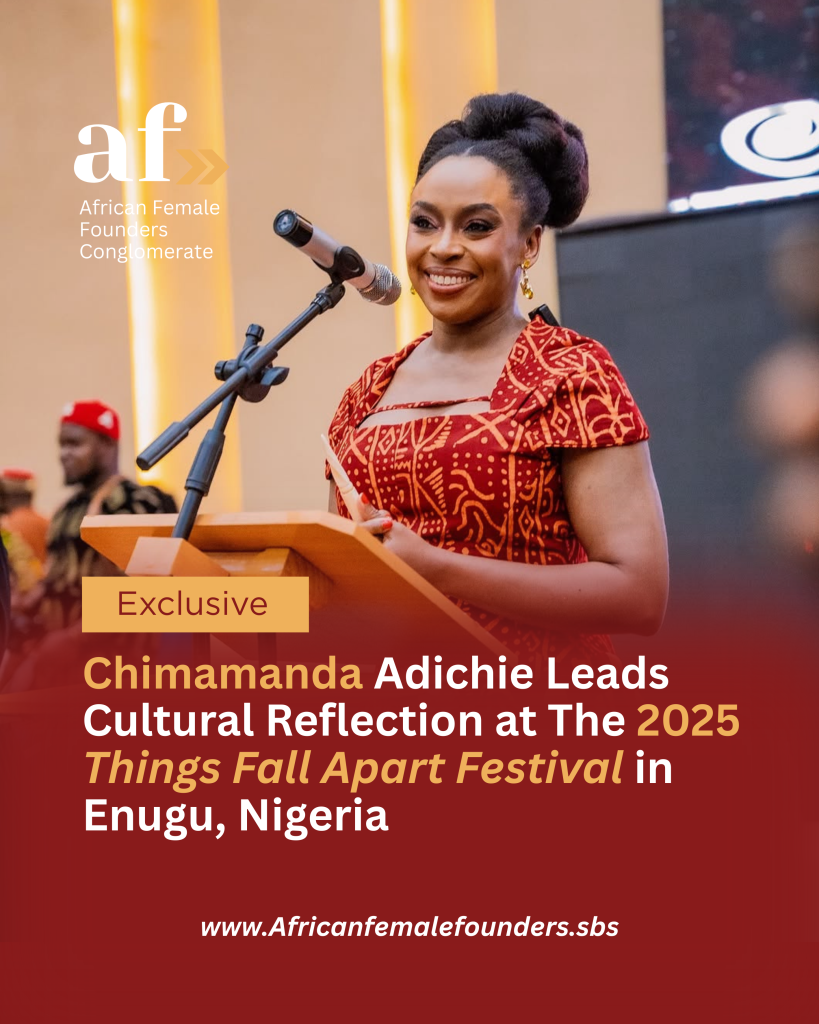
Renowned Nigerian writer and cultural icon, Chimamanda Ngozi Adichie, delivered a compelling keynote address at the first-ever Things Fall Apart Festival in Enugu, calling for unity, self-examination, and renewed cultural consciousness among the Igbo people and Africans at large.
The festival, which commemorated 67 years since Chinua Achebe’s landmark novel Things Fall Apart was published, ran from June 29 to July 5. It was organised by the Centre for Memories (Ncheta Ndigbo) and themed: “Masculine, Feminine, Human: The Dialogue of Complements in Things Fall Apart.” The week-long event blended tradition and innovation, offering guests a dynamic cultural experience featuring immersive recreations of Umuofia village, live stage plays, art exhibitions, essay competitions, technology showcases, and guided memory walks.
Adichie, who recently concluded her global book tour for Dream Count, used her keynote speech to address the growing insecurity in the region, especially the alarming rise in ritual killings and socio-political instability. Speaking passionately, she urged Ndi Igbo to “reject barbarism,” “clean our own house,” and “come together despite our differences.”
Dressed in resplendent Igbo attire, Adichie expressed deep sorrow over the state of her homeland, declaring that Enugu “no longer feels like home” due to pervasive fear and insecurity. Drawing from Achebe’s powerful themes, she reminded the audience that “nothing is more sacred than life itself”, a core principle deeply rooted in Igbo cosmology.
The festival also paid homage to Achebe’s towering legacy with dramatic re-enactments from Things Fall Apart, special appearances by veterans from the 1987 television adaptation—including Nollywood legend Pete Edochie—and traditional cultural showcases such as the revered Ajofia masquerade performance.
With the festival attracting writers, students, scholars, and cultural enthusiasts from across the continent, organisers say it marks the beginning of an annual movement to not only preserve Achebe’s legacy but to inspire a generation of Africans to reclaim and redefine their narratives.

